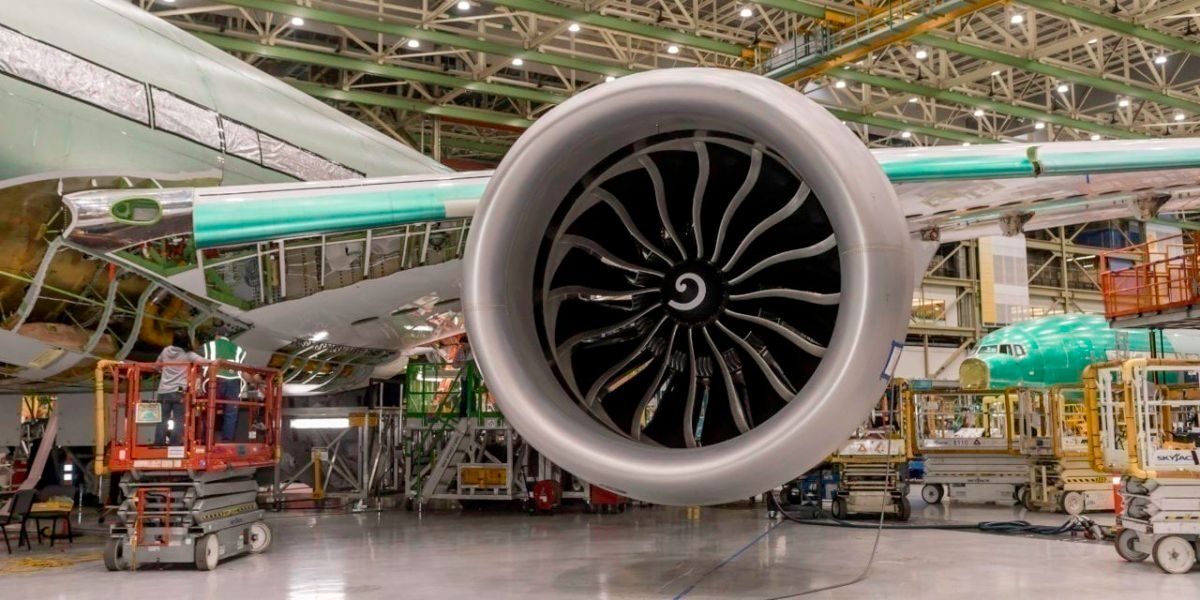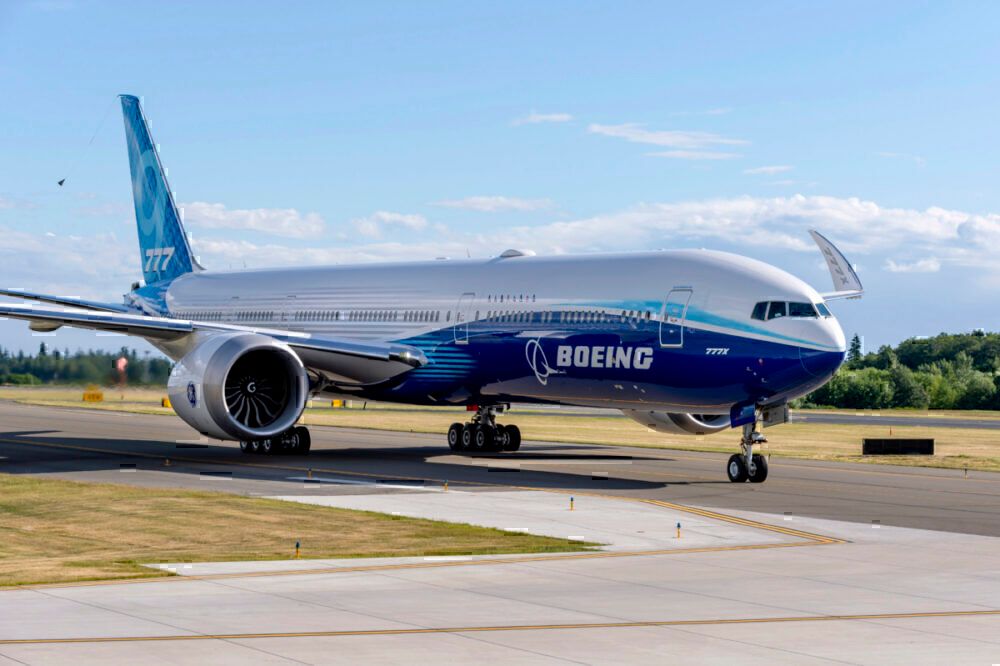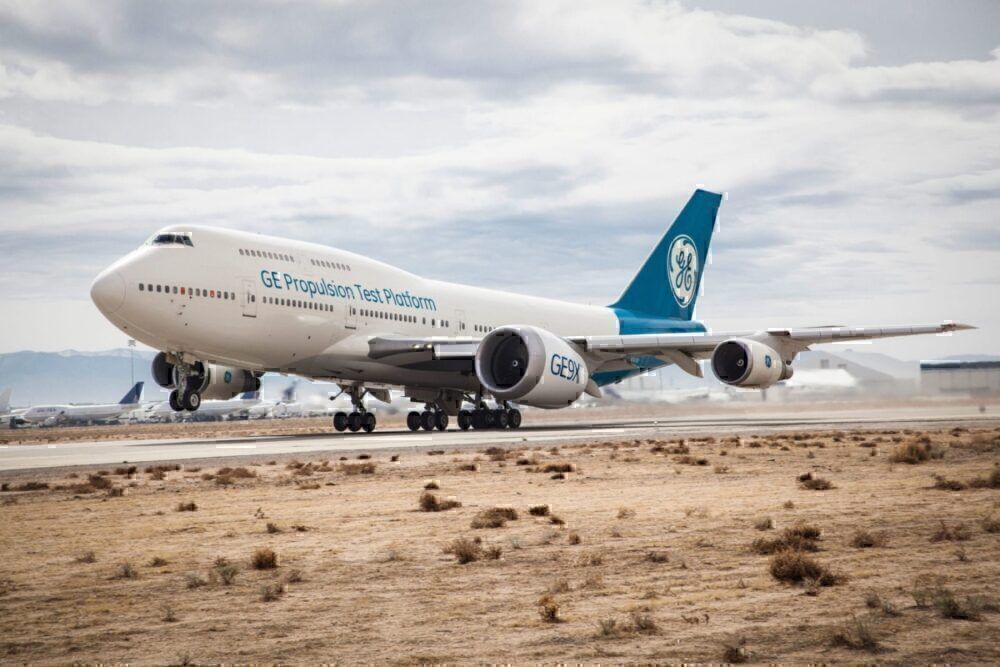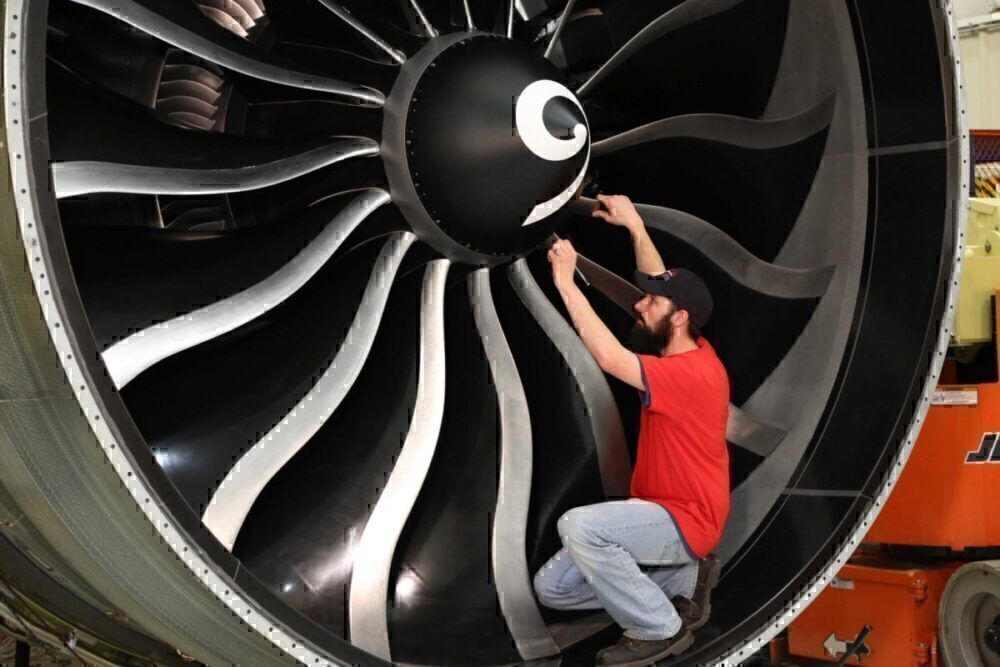The giant GE9X engines, developed by GE Aviation specifically for the 777X, have achieved certification from the Federal Aviation Administration (FAA). Test engines underwent 5,000 hours of testing to achieve certification, marking a major milestone on the road to the 777X's entry into service.
Certification achieved
GE Aviation has announced today that the Boeing 777X's giant powerplants have received certification from the Federal Aviation Administration (FAA). It's a significant step forward in the development of the 777X and puts the giant aircraft on a firm footing to enter service in 2022.
Although the introduction of the GE9X didn't always run smoothly, it appears all the teething troubles have been ironed out. John Slattery, president and CEO of GE Aviation, praised his development team for the considerable effort that has gone into getting these engines to certification. He commented,
“It takes the world’s best talent in jet propulsion to create a game-changing product like the GE9X engine. There is no substitute that can achieve the combination of size, power and fuel efficiency of the GE9X. This engine will deliver unsurpassed value and reliability to our airline customers. I want to congratulate the entire GE9X team and thank Boeing, our partners and suppliers for the collaboration on this incredible achievement.”
GE has so far delivered eight GE9X test engines and two spares. The last two made their first public appearance on Boeing's fourth 777X test aircraft last week. GE is already working on its first production engines and is conducting maturation testing to help its engineers prepare to support the GE9X once in service.
Stay informed: Sign up for our daily aviation news digest.
The testing process
The test undertaken was the Federal Aviation Regulation (FAR) Part 33 certification. For this, GE supplied eight test engines. In order to test the products for the certification process, the GE9X test engines underwent just short of 5,000 hours of testing. They completed around 8,000 cycles.
Karl Sheldon, GE9X program general manager, was delighted with the outcome, commenting,
“The GE9X engine has been through a rigorous and thorough certification and testing process. We are pleased with the performance of the engine, which has been validated through extensive ground and flight testing. We are excited to deliver a mature, state-of-the-art product to operators around the world.”
There are more tests ongoing as well. GE Aviation is currently undertaking 3,000 cycles of additional ground-based testing in relation to Extended Range Twin Engine Operations (ETOPS) approval. The Boeing 777X is hoping for a high ETOPS approval to enable it to fly long routes, hopefully something in the range of the A350's 370-minute standard.
The world's largest engines
Throughout the development of the 777X, the huge GE9X has received plenty of attention. As the largest and most powerful commercial aircraft engines ever to be built, the advanced technologies incorporated in these powerplants are really raising the bar for commercial aerospace engineering.
Despite their jaw-dropping size, with a diameter larger than a 737 fuselage, these engines are designed to be incredibly quiet and efficient. GE says that they are the quietest engine ever to be built by them, falling within 8 dB of Stage 5 aircraft noise standards.
Of course, it's highly efficient as well, reducing emissions by 29% compared to its predecessor. For airlines, this will lower fuel costs by 10% compared to the -300ER. For people on the ground, the 777X will have the lowest NOx emissions from any GE engine, reducing pollution and its environmental impact.




